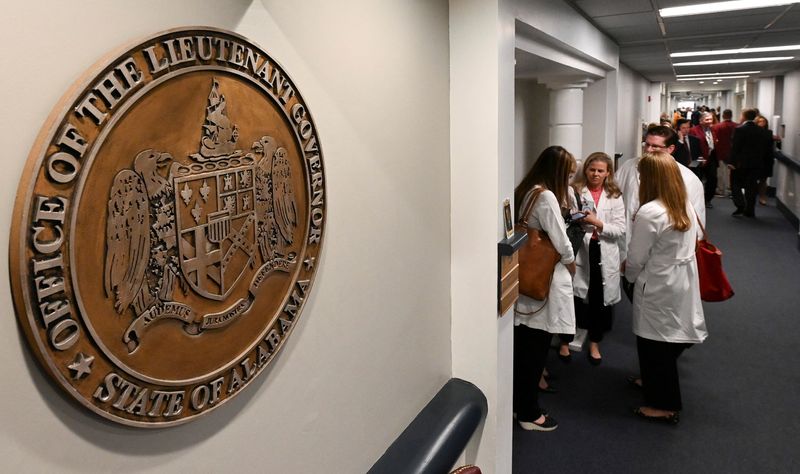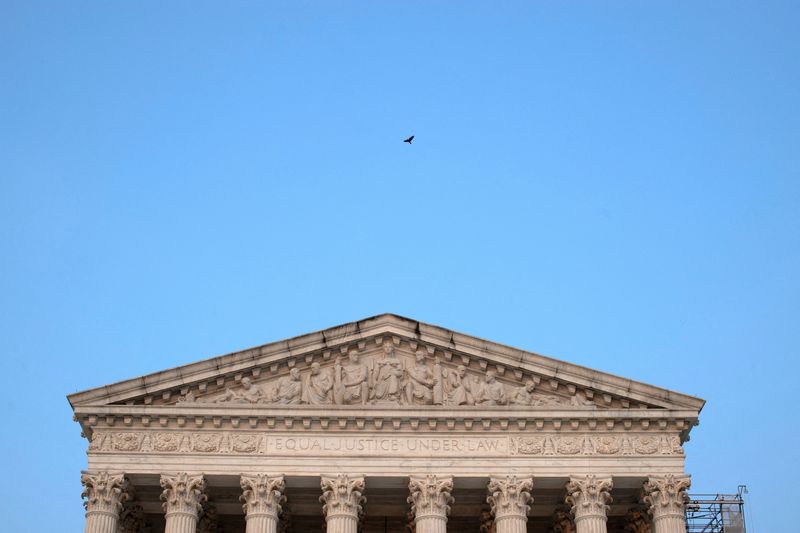By Andrew Chung
WASHINGTON (Reuters) - The U.S. Supreme Court turned away on Monday a bid by an Alabama fertility clinic to avoid a wrongful death claim in a civil lawsuit over the destruction of a couple's frozen embryo in a case that has caused concern over the legal landscape for in vitro fertilization.
The justices denied an appeal by the Mobile-based Center for Reproductive Medicine of a ruling by Alabama's top court allowing the suit by Felicia Burdick-Aysenne and Scott Aysenne to proceed after deciding that frozen embryos are considered children under state law. The clinic has called the ruling a violation of its constitutional right to due process.
The couple sued the Center for Reproductive Medicine and the hospital housing the clinic in 2021 for wrongful death and negligence after a patient at the hospital gained unauthorized access to the cryogenic embryo storage area and removed several embryos, dropping them on the floor, including the couple's one remaining embryo.
The Republican-controlled Alabama Supreme Court in February ruled in the case that under an Alabama law called the Wrongful Death of a Minor Act, "unborn children are 'children,'" even outside the womb, allowing the lawsuit seeking monetary damages from the clinic to move forward.
The decision prompted IVF providers in Alabama to suspend treatments, while many health advocates and Democratic officials across the United States held up the decision as offered further evidence that reproductive rights are under assault in the aftermath of the U.S. Supreme Court's 2022 decision rolling back abortion rights.
IVF, which helps couples experiencing infertility issues, is a procedure in which eggs are removed from a woman's ovary and combined with sperm in a laboratory dish to form embryos. The embryos can be frozen for future implantation.
Republicans scrambled to contain the fallout from the Alabama court's decision, with Republican presidential candidate Donald Trump publicly declaring his support for IVF with the Nov. 5 U.S. election looming.
In response, the Republican-led Alabama legislature passed a law, signed by Republican Governor Kay Ivey in March, providing immunity from criminal charges or civil claims to IVF providers.
The clinic told the U.S. Supreme Court that this Alabama law, even though it applies retroactively, does not protect it from the wrongful death suit.
The Center for Reproductive Medicine in its appeal to the U.S. Supreme Court called the state high court's decision a violation of the clinic's right to due process under the U.S. Constitution's 14th Amendment. The clinic told the justices that the state high court's ruling is "subjecting providers of critical reproductive services to the possibility of unprecedented punitive damages for the virtually inevitable loss of some fertilized eggs or eventual destruction of unused embryos."

A state trial judge had dismissed the couple's wrongful death claim before the Alabama Supreme Court revived it.
The couple did not offer a response to the clinic's appeal, and the U.S. Supreme Court did not order them to file one.
